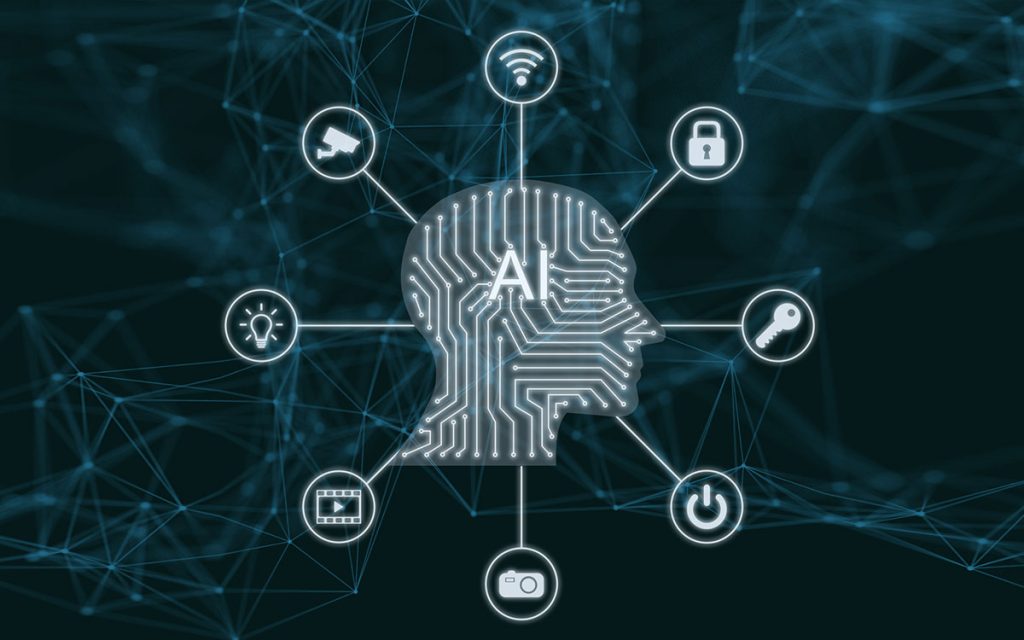As far as we know, time travel is impossible. So predicting the future of hearing aids is going to be tricky (I can’t even predict next week reliably). But we can definitely make some assumptions (and educated guesses) based on trends in technology and AI.
Now, when I say “AI,” it’s important that you not let your mind wander too far in a Terminator/The Matrix direction. Even though AI stands for Artificial Intelligence, we’re not talking about sentient machines that are secretly planning the apocalypse. Instead, modern AI is all about complex, learning algorithms. This is typically referred to as machine learning. And it’s going to change the way you hear.
Empathetic technology
Thus far, no one’s invented a computer that can read your thoughts. (When they do, they should name it Cerebro.) But machine learning algorithms are getting better at predicting human behavior and emotional states–and that’s a development that’s making the future of hearing aids look more responsive and effortless.
This particular type of artificial intelligence is usually referred to as “empathetic technology.” While it may sound quite emotional, empathetic technology simply examines a wide variety of data in order to make assumptions about what a person is doing or feeling. Taken a step further, empathetic technology is able to make routinely accurate predictions about what someone wants.
Machine learning in hearing aids
So, maybe these developments in predictive technology are good for deciding what to have for dinner tonight (my most dreaded decision of the day; I would love a machine that could accurately predict what I want for dinner every night… double points if that machine would then make me food). But that’s just the tip of the iceberg. When properly deployed, empathetic technology could help make hearing aids more effective, more intuitive, and more comfortable. In fact, that’s how hearing aid manufacturers have been using AI – to help block out background noise and be more intuitive.
Imagine a hearing aid that knows what you want:
- A hearing aid using empathetic technology could, in theory, accurately focus on the sounds you want to hear, whether it’s the loudest noise in the room or not.
- Empathetic hearing aids could determine when you want to concentrate and when you don’t, allowing you to zone out or zoom in depending on your level of cognitive intensity.
- In theory, empathetic hearing aids can do amazing things when reading a room and adjusting for the context in which you’re sitting. This is much more sophisticated than the relatively simple observations that current hearing aids are capable of.
A hearing aid that employs machine learning would be able to take all of this data and then instantly make adjustments to the settings of the hearing aids themselves, improving the performance of the devices based on the unspoken preferences of the individual user.
Hearing aids more like your ear
A hearing aid that doesn’t work properly is always reminding you it’s there. Do you need to adjust the volume? That’s a reminder you’re wearing a hearing aid. Unable to filter out the background noise? Hey, another reminder.
When your hearing aid works flawlessly, however, you barely even notice it. That’s why the idea behind empathetic artificial intelligence is so exciting. In theory, these AI-enabled hearing aids would function more like your ears, seamlessly integrating into your life. At least, that’s the dream.
Back…er, forward, to the future!
How machine learning and hearing aids come together in the years to come will be anyone’s guess. Like I said, predicting the future isn’t easy (unless you’re a time traveler, in which case, feel free to send us a heads up on next week’s winning lotto numbers, eh?). But the march of progress–at least, technologically–is pretty dependable.
Machine learning and empathetic technology could make a big difference in helping people maintain independence and improve cognition throughout their lives. We know that hearing aids can make a big improvement in outcomes across the years. The future of hearing aids is one that looks to make the technology more seamless and more effective.
The irony is that artificial intelligence is helping to make your hearing aids more human.



